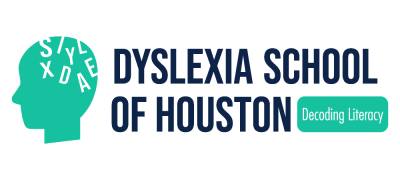For 28 years, Rotary Club of West U has hosted its annual charity golf tournament which supports a chosen beneficiary in the Houston area. This year’s tournament will support The Code Academy-Dyslexia School of Houston in its mission to provide access to world-class dyslexia intervention support to all students, regardless of their financial background.
All proceeds will go towards scholarships for underprivileged students to attend a private dyslexia therapy program focused on decoding dyslexia and related learning challenges.
Tammy Spencer, founder and CEO of The Code Academy-Dyslexia School of Houston, said she is overjoyed her company was chosen to be this year’s beneficiary and the funding from West U will go toward the academy’s annual summer camp in June. The camp costs $2,500 per student and works with individuals who have been identified or have yet to be identified with dyslexia. Camp attendees receive over 60 hours of intensive instruction to support their general education.
“[That funding] is really going to come in handy in supporting many more kids,” Spencer said. “We're kind of a niche, because not many people are able to reach these children in the ways in which they learn, so it's a very positive opportunity.”
Spencer said she goes by the International Dyslexia Association’s definition of dyslexia, which defines the learning disability as neurobiological in origin and is characterized by difficulties with accurate and/or fluent word recognition as well as by poor spelling and decoding skills, according to the association’s website.
Some consequences of dyslexia can include issues with reading comprehension and a reduced number of reading experiences, impeding growth of vocabulary and background knowledge.
Spencer said there is a general misconception that students with dyslexia are unable to perform cognitively, but that is not actually the case.
“They’re usually above-average cognitively, they just have this little glitch that we have to overcome,” Spencer said. “And that’s the bottom line: we want them to overcome their dyslexia. We want them to own it and be proud of it.”
To help young learners overcome their dyslexia, the learning center embraces kids’ frustrations and gives them the tools they need to get past them.
Many kids become frustrated in the transition from second to third grade, because they feel as though they’re falling behind. Spencer said these frustrations can turn into low self-esteem or thoughts of self-harm if kids don’t get the support they need.
“When their friends and peers progress and they struggle, they don’t know how to handle it,” Spencer said. “We need to provide prevention rather than intervention. We can get them to overcome their dyslexia. It’s neurobiological, so it won't go away, but we can give them strategies to overcome it.”
Spencer said historically, dyslexia is simultaneously present with attention-deficit/hyperactivity disorder, so Dyslexia School of Houston teaches students the way they learn best.
Some children learn best by standing behind their chair, swaying a bit or putting their arm in the air. What the child needs to learn best is allowed at Dyslexia School of Houston, and these accommodations lead young learners to success.
Spencer compared public and private school systems to a box and kids with dyslexia to a ball. If the ball is simply placed in the box without anything else, it might roll around and be jostled—it doesn’t fit correctly.
“Our instruction is providing padding to fill those gaps,” Spencer said.
This “padding” is as necessary to learners with dyslexia as glasses are to those without perfect vision. They need their glasses to see correctly, and in the same way, students with dyslexia need explicit, multi-sensory ways to correctly manipulate letters and sounds.
People may be surprised to learn that about 20% of the population has dyslexia and in Houston, Spencer said over 30% of the population is functionally illiterate.
“It’s not brand-new, we just don’t want to talk about it and it’s too expensive to remediate...[but] reading affects everyone in every way,” Spencer said. “Overcoming dyslexia is going to really start changing the world.”
The Code Academy-Dyslexia School of Houston is located at 3642 University Blvd., Ste. 101, Houston
Learn more about dyslexia and The Code Academy-Dyslexia School of Houston on the website. Want to help support the rotary club? Donate to the Rotary Club of West U and support the charity golf tournament.
The above story was produced by Senior Multi Platform Journalist Summer El-Shahawy with Community Impact's Storytelling team with information solely provided by the local business as part of its "sponsored content" purchase through our advertising team.
Select your community
Support Us
News
- Austin Metro
-
Houston Metro
- Houston Metro Home
- Bay Area
- Bellaire | Meyerland | West University
- Conroe | Montgomery
- Cy-Fair | Jersey Village
- Cypress
- Heights | River Oaks | Montrose
- Katy | Fulshear
- Lake Houston | Humble | Kingwood
- New Caney | Porter
- Pearland | Friendswood | Manvel
- Spring | Klein
- Sugar Land | Missouri City
- The Woodlands
- Tomball | Magnolia
- Dallas | Fort Worth Metro
- San Antonio Metro








